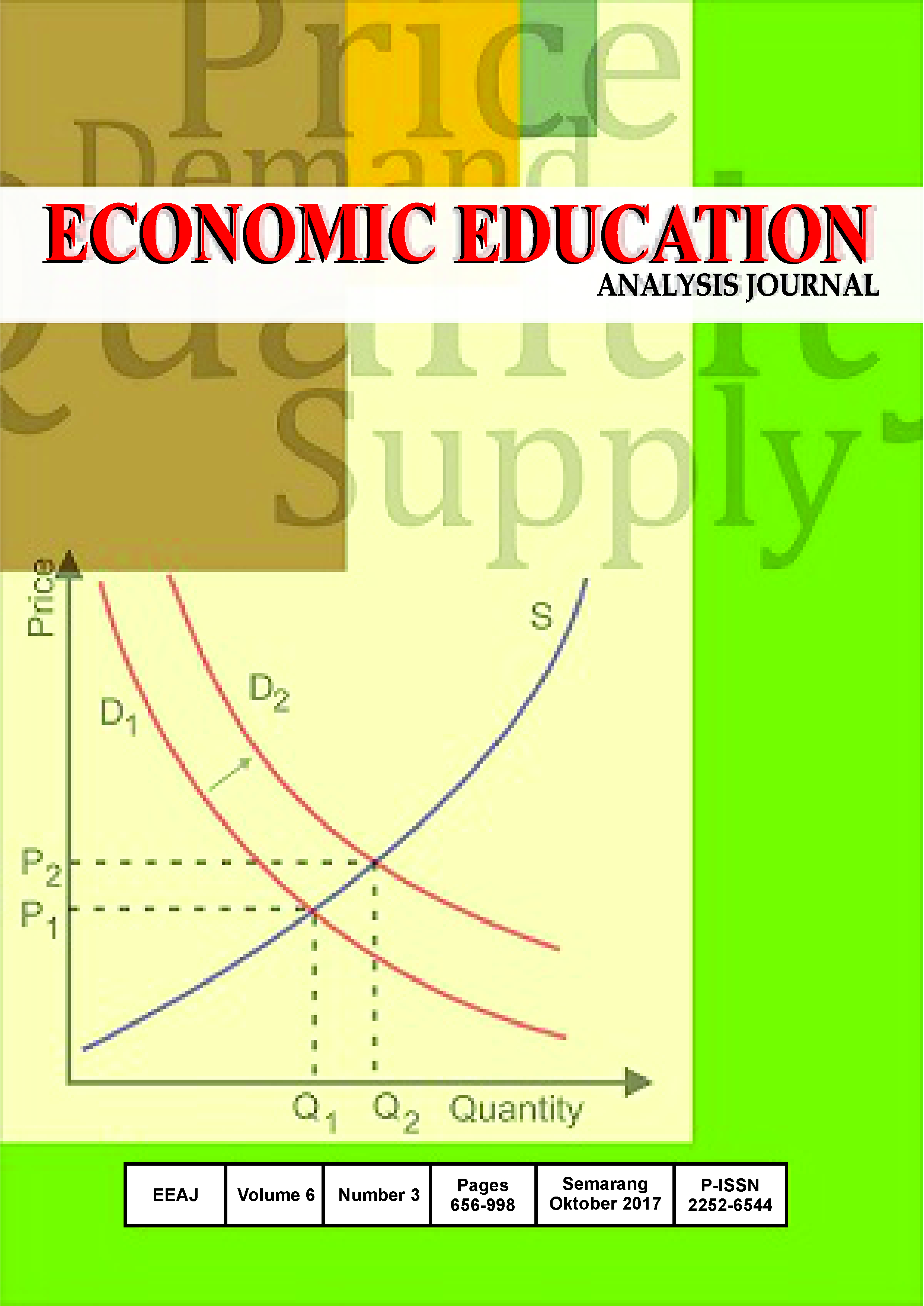IMPLEMENTASI PROGRAM JUNIOR ACHIEVEMENT BE ENTREPRENEURIAL PADA MATA PELAJARAN KEWIRAUSAHAAN
Main Article Content
Abstract
Penelitian ini bertujuan untuk mendeksripsikan dan menganalisis implemtentasi program Junior Achievement Be Entrepreneurial pada mata pelajaran kewirausahaan di SMA Negeri 3 Semarang. Pendekatan yang digunakan yaitu kualitatif, metode deskriptif, dan desain penelitian studi kasus. Pengumpulan data menggunakan observasi, wawancara, dan studi dokumen. Hasil penelitian menunjukan bahwa kegiatan program sebelum pembelajaran yaitu sosialisasi program, pelatihan trainer dan guru, serta perencanaan. Pelaksanaan pembelajaran selama 8 sesi pertemuan terdiri dari pengenalan program, pre test, materi, post test, dan kuesioner. Kriteria kelulusan siswa mengikuti program dari pre test dan post test, kehadiran, buku kerja siswa, proposal rencana bisnis, dan kuesioner dengan status kelulusan succes dan succes complete serta mendapat sertifikat. Setelah pelaksanaan pembelajaran ada kegiatan ekstrakurikuler atau kegiatan luar kelas yang disebut weekly meeting untuk persiapan student company competition. Hasil kelulusannya yaitu 95,93% dan prestasi yang didapat dari tingkat regional, nasional, dan asia-pasifik. Materi yang diajarkan meliputi motivasi kewirausahaan, ide bisnis, siapa pelangganku, apa keunggulanku, etika bisnis, dan rencana bisnis. Strategi pembelajaran menggunakan diskusi kelompok kecil. Pihak yang terlibat langsung yaitu siswa, guru dan trainer, sedangkan pihak lain yang terlibat yaitu yayasan Prestasi Junior Indonesia, sekolah, Dinas Pendidikan, dan Citi Bank. Simpulan program Junior Achievement Be Entrepreneurial yaitu baik, layak, dan dapat disebarluaskan.
This study aimed to describe and analyze the implementation of Junior Achievement Be Entrepreneurial program on entrepreneurship subjects in SMA Negeri 3 Semarang. The approach used is qualitative, descriptive methods, and case study research design. The collection of data through observation, interviews and document study. The results showed that the activities of the program before learning that socialization programs, training of trainers and teachers, and planning. Implementation of learning for 8 sessions consist of an introduction to the program, the pre-test, materials, post-test, and questionnaire. Criteria for graduation students follow a program of pre-test and post-test, attendance, student workbook, business plan proposal, and questionnaires with graduation status and succes succes complete and certified. After the implementation of learning there are extra-curricular activities or activities outside class called weekly meetings for the preparation of student company competition. Results graduation are 95.93% and achievements gained from regional, national, and Asia-Pacific. The material taught include the motivation of entrepreneurship, business ideas, who my customers, what is my superiority, business ethics, and business plans. Learning strategy use of small group discussions. Parties directly involved, namely students, teachers and trainers, while the other parties involved, namely the Junior Achievement Indonesia, the school, the Department of Education and Citi Bank. Conclusion Junior Achievement Be Entrepreneurial program that is good, decent, and can be disseminated.
